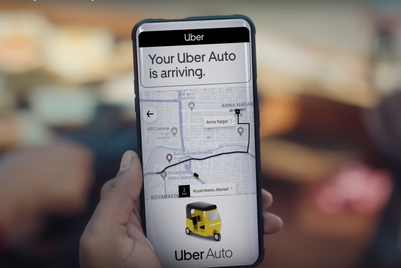
It’s easy to understand why all the ride-hailing apps want in on Yangon, where people spend hours every day trying to traverse its infamous traffic. The city’s lack of taxi unions make it all the more attractive, as this removes one major source of resistance that ride-hailing apps have battled elsewhere.
But if there’s one thing Yangon has, it’s taxis. Thousands of the things. Maybe not registered, monitored or metered, but always there, careering across lanes to scoop potential fares.
And while much focus is on the fight for passengers, and how both international and local players will fare in a market largely unaccustomed to metered cabs, what of the battle for drivers? While they are currently not subject to any legislation, neither are they pre-conditioned to any form of obligation, whether contractual or loyal.
Local brand Oway Ride has been pioneering the concept of ride-hailing via smartphone. Boosted by investment last year, it has the technology and a fledgling network of drivers to ease the considerable pain of negotiating fares in peak traffic or rainy season, improving safety for single passengers, offering receipts and journey summaries, plus some level of comfort standard assurance.
Inevitable teething problems have included inaccurate GPS adding journey time for cabs looking for their bookings, time-consuming cash payments at the end of the ride, and most significantly, a limited number of cars signed up to the app making it a high-risk experiment for anyone in a real hurry.
International or local, all these companies are only as good as the service their brand delivers, and service is heavily reliant on the fleet. Their drivers are their product as much as they are their ambassadors, and this will be the real battlefield for these ride-hailing brands. The key to success will be in how each company treads the fine line between delivering the best value and service to passengers, and not only recruiting, but retaining a fleet of loyal drivers.
Loyalty from the get-go is a big challenge. Especially in a market that is accustomed to picking and choosing the best of all worlds where service brands are concerned. Just ask a telco provider who sits in the second SIM slot. With Uber and Grab jumping into the market at roughly the same time, the inevitable rush to gain custom is bound to bring with it some promotions and offers. But while a fixed price may appeal to a passenger, this may feel like a loss of income to the driver. Gaining the trust of the drivers will be key to maintaining an active fleet.
So, while taxi-hailing Yangonites will undoubtedly be treated to some impassioned and powerful advertising campaigns in the coming months, their custom won’t lead to success. It will be a reflection of success.
What will drive one competitor to victory will be, well, the drivers.

Milla Chaplin is head of strategy at Y&R Yangon
|


.jpg&h=334&w=500&q=100&v=20250320&c=1)



.png&h=334&w=500&q=100&v=20250320&c=1)

.png&h=334&w=500&q=100&v=20250320&c=1)

.png&h=334&w=500&q=100&v=20250320&c=1)




.png&h=268&w=401&q=100&v=20250320&c=1)
.jpg&h=268&w=401&q=100&v=20250320&c=1)
.png&h=268&w=401&q=100&v=20250320&c=1)

